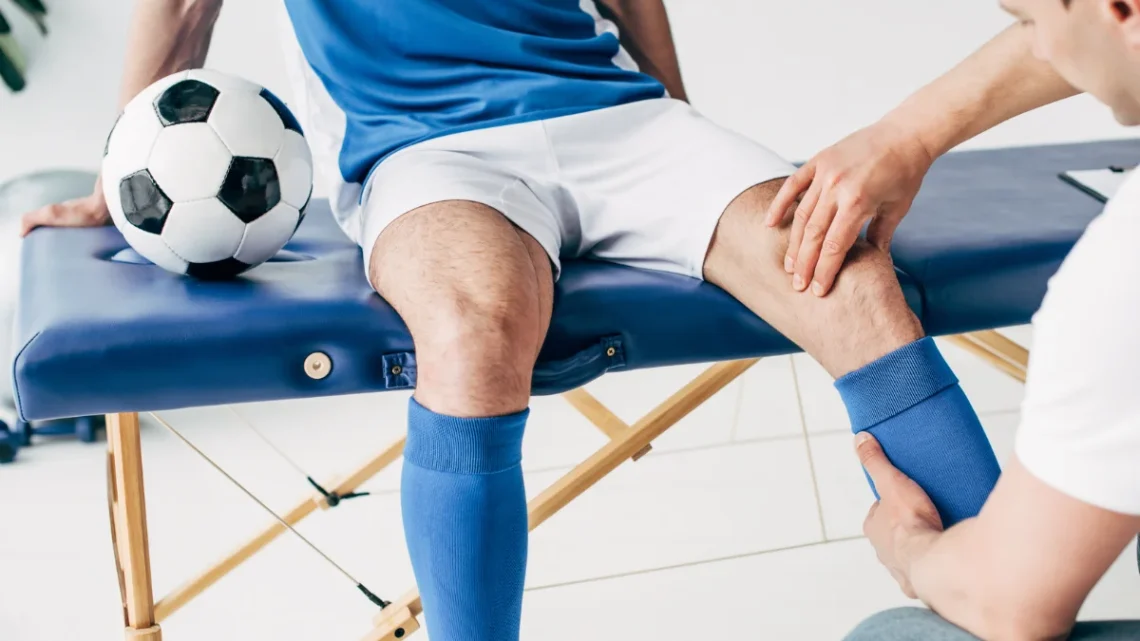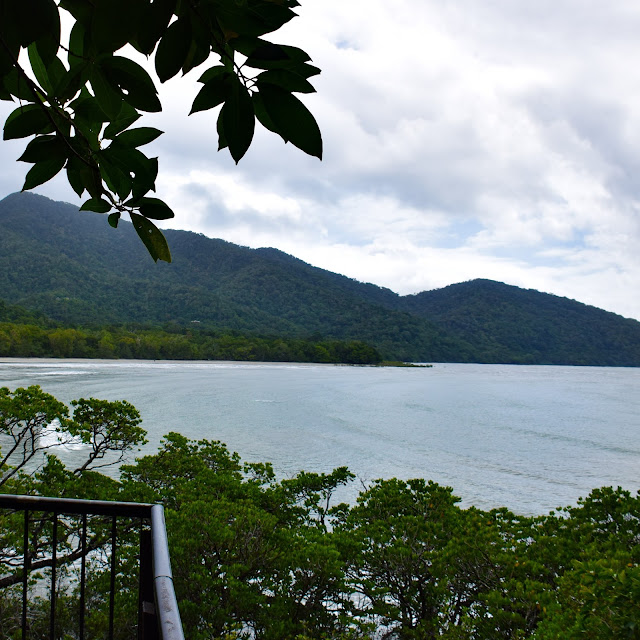
Understanding Sports Injuries While Traveling Abroad
Engaging in physical activities overseas can be an exhilarating experience, filled with adventure and new challenges. However, the excitement of exploration can sometimes lead to unexpected issues that require immediate attention. Understanding how to respond to these situations is crucial for any individual passionate about maintaining an active lifestyle, even when far from home.
When participating in dynamic pursuits in unfamiliar locations, the risk of encountering physical discomfort or setbacks increases. Being equipped with knowledge on how to respond effectively can make a significant difference in ensuring your well-being. This involves knowing the right steps to take, from seeking appropriate medical assistance to implementing remedies that promote swift recovery.
Traveling does not have to hinder your athletic endeavors. Rather, with a proactive mindset and awareness of best practices, you can navigate any challenges that arise. By prioritizing safety and being prepared for unforeseen occurrences, adventurers can continue to enjoy their favorite activities without compromising their health.
Understanding Common Sports Injuries
In the world of physical activity, it’s crucial to be aware of the various ailments that can arise. Whether you’re engaging in a thrilling match, taking part in a marathon, or simply enjoying a recreational game, certain conditions are frequently encountered. Familiarity with these issues can help in prevention and treatment, ensuring a safer and more enjoyable experience.
Strains are among the most prevalent concerns, often resulting from overstretching or tearing muscles or tendons. These can occur in any part of the body, but frequently affect the lower back, hamstrings, and quadriceps. Recovery typically involves rest, ice, and gentle stretching.
Sprains, on the other hand, involve the ligaments and usually happen when a joint is forced beyond its normal range of motion. Ankle sprains are particularly common, as they can happen during quick changes in direction. Treatment often includes stabilization, icing, and elevation.
Fractures refer to breaks in the bone and can vary from hairline cracks to complete breaks. They can result from high-impact activities or falls. Treatment will depend on the severity but generally requires immobilization or, in some cases, surgery.
Contusions, or bruises, occur when small blood vessels are damaged due to direct impact. These can be painful and lead to swelling, but typically heal without extensive medical intervention.
Being informed about these common conditions allows individuals to take proactive steps towards both prevention and effective response in the event they arise. Awareness can make a significant difference in maintaining one’s health and enjoying physical activities to their fullest.
Preparing for Outdoor Activities Abroad
Engaging in recreational pursuits in a foreign environment offers an exhilarating way to immerse yourself in new landscapes and cultures. However, it is crucial to approach these adventures with careful consideration and thorough preparation to ensure a safe and enjoyable experience. This section outlines the key steps to take prior to embarking on your outdoor activities, emphasizing the importance of readiness and awareness.
Researching Your Destination
Understanding the region where you plan to explore is vital. This includes looking into local weather conditions, terrain types, and potential hazards. Knowing what to expect can significantly enhance your experience and minimize risks associated with unfamiliar environments.
|
Destination |
Typical Weather |
Common Risks |
|---|---|---|
|
Mountain Areas |
Variable, Cold Nights |
Altitude Sickness, Slips |
|
Coastal Regions |
Mild to Hot, Humidity |
Sunburn, Water Risks |
|
Forest Trails |
Temperate, Wet |
Wildlife Encounters, Lost Paths |
Gathering the Right Gear
Equipping yourself with appropriate tools and apparel is essential for outdoor ventures. Ensure that your gear is well-suited for the activities you intend to pursue, and that it aligns with the environmental conditions of your chosen location. Proper footwear, clothing layers, and safety equipment can make a significant difference in your overall enjoyment and safety.
Recognizing Symptoms of Injuries
Understanding the signs of physical trauma is crucial for effective management and recovery. When participating in recreational activities or competitive events outside your home environment, being vigilant about how your body responds can help prevent further complications. Familiarizing yourself with common indicators will allow for prompt action and care.
Look out for the following typical manifestations:
-
Pain: This can range from mild discomfort to sharp, intense sensations. Be attentive to any pain that is persistent or worsens over time.
-
Swelling: Noticeable swelling or inflammation in a specific area can signify underlying issues. This may occur immediately or develop after some time.
-
Bruising: Discoloration of the skin often indicates trauma and may be accompanied by pain and swelling.
-
Limited Mobility: Difficulty in moving a joint or limb can be a result of strain or damage and should not be overlooked.
-
Weakness: A sudden feeling of instability or weakness in a limb may indicate a more serious condition.
In addition to these physical symptoms, be aware of emotional and psychological signals:
-
Anxiety: Feeling anxious or fearful about engaging in physical activities may correlate with previous experiences of discomfort.
-
Concentration Issues: Difficulty focusing can arise from pain or the stress of an injury.
Recognizing these signs early is key to seeking appropriate assistance and ensuring a smoother recovery process. If multiple symptoms present themselves simultaneously, do not hesitate to consult a healthcare professional sooner rather than later.
First Aid Tips for Travelers
When exploring new destinations, it’s crucial to be prepared for unexpected health issues that may arise. Familiarizing yourself with basic care techniques can make a significant difference in managing minor accidents or ailments during your journey. This section provides practical recommendations to ensure your well-being on the road.
Essentials for Your Travel First Aid Kit
Having a comprehensive kit is the first step toward being ready for any mishap. Your kit should include items such as adhesive bandages, antiseptic wipes, pain relievers, and any personal medications you may need. Additionally, consider including a small pair of scissors, tweezers, and a first aid manual or guide available in various languages.
Basic Care Techniques
In the event of a minor mishap, knowing how to address it can be incredibly helpful. If you encounter a cut or scrape, clean the area thoroughly with soap and water, then apply an antiseptic and a bandage. For sprains or strains, resting the affected area and using ice can reduce swelling and alleviate discomfort. Always monitor your condition; if symptoms persist or worsen, seek local medical assistance.
Accessing Medical Services in Foreign Countries
When traveling overseas, it is crucial to understand how to obtain necessary healthcare services in case of unexpected health issues. Each country has its own healthcare system, facilities, and processes, which can vary significantly from what one may be accustomed to. Being informed about local medical resources can greatly ease the experience during challenging times.
Understanding Local Healthcare Systems
Before embarking on your journey, take time to research the healthcare infrastructure of your destination. Some nations offer advanced medical services similar to those found in developed regions, while others may have limited options. Familiarize yourself with the types of facilities available, such as hospitals, clinics, and pharmacies. Additionally, learn about any specific protocols for seeking assistance, as they can differ widely from one locale to another.
Emergency Contacts and Insurance
Ensure you have local emergency contact numbers readily available, including ambulance services and nearby hospitals. It is also prudent to review your health coverage; ensure that your insurance will provide support for treatment outside your home country. Carry a copy of your policy details and any necessary documentation to facilitate interaction with local medical professionals.
Being prepared can make a significant difference in ensuring your well-being when facing medical situations in a foreign land. Having the right information at hand allows for a more efficient response, ultimately contributing to a better travel experience.
Preventing Injuries While Traveling
Traveling often involves engaging in various physical activities, making it essential to prioritize your well-being. Taking proactive measures can help reduce the risk of mishaps and ensure you enjoy your journey to the fullest. Here are some effective strategies to keep in mind:
-
Stay Hydrated: Dehydration can lead to fatigue and muscle cramps. Always carry a water bottle and drink plenty of fluids.
-
Warm-Up and Stretch: Prior to engaging in any physical activities, take a few minutes to stretch and warm up your muscles. This can greatly minimize the chances of strain.
-
Use Proper Gear: Invest in good-quality footwear and equipment suitable for the activities you plan to undertake. This can significantly reduce the risk of discomfort and accidents.
-
Listen to Your Body: Pay attention to any signs of fatigue or discomfort. It’s better to take a break than to push through pain.
-
Research Local Facilities: Familiarize yourself with local parks, gyms, or sports centers. Knowing where to find good environments can enhance your experience.
Implementing these precautions will not only enhance your travel experience but also promote a healthy and safe adventure. Make well-informed choices and enjoy your travels with confidence!
Questions and answers: Sports injury abroad
What should I do if I get injured while playing sports abroad?
If you get injured while playing sports abroad, the first step is to assess the severity of your injury. If it’s minor, such as a sprain or strain, you can often treat it on your own with rest, ice, compression, and elevation (RICE). However, if the injury is severe, like a fracture or a deep cut, seek medical attention immediately. You might want to find a local hospital or clinic, preferably one that caters to expatriates or tourists. It’s also wise to have travel insurance that covers sports injuries, as this can help with costs and facilitate access to medical care. Remember to take note of any medical documents provided, as these may be needed for insurance claims later.
How can I find the nearest medical facility while traveling?
To find the nearest medical facility while traveling, you can use your smartphone’s map application (like Google Maps) to search for hospitals or clinics nearby. Additionally, many travel apps provide information on local healthcare services. If you’re staying at a hotel, the front desk can also assist you in locating medical facilities. It’s recommended to research beforehand by noting the locations of medical centers in the areas where you’ll be staying or participating in sports. Having this information at hand can significantly reduce stress in case of an emergency.
What should I include in my first aid kit when traveling for sports?
When traveling for sports, it’s essential to have a well-stocked first aid kit. Here are some key items to include: adhesive bandages in various sizes for minor cuts and scrapes, antiseptic wipes or cream to prevent infection, gauze and tape to dress larger wounds, pain relievers like ibuprofen or acetaminophen, a cold pack for swelling, and elastic bandages for sprains and strains. It’s also wise to include any personal medications you might need, as well as a list of emergency contacts and your insurance information. Regularly check and replenish your kit to ensure you have everything you need in case of an injury.
What precautions should I take to prevent sports injuries while abroad?
To prevent sports injuries while abroad, start by ensuring you’re physically prepared for the activities you plan to participate in. This includes warming up properly before any strenuous activity and cooling down afterward. It’s also crucial to stay hydrated and to be aware of the local climate, which may differ significantly from what you are used to. Always use appropriate gear and equipment for the sport you’re engaging in and ensure it’s suited to your skill level. Additionally, familiarize yourself with the area where you’ll be playing—such as checking for any hazards or understanding the rules of the game being played locally. By taking these precautions, you can significantly reduce the risk of injury while enjoying sports during your travels.
What should I do if I suffer a sports accident abroad and need immediate medical attention?
If you suffer a sports accident abroad, seek immediate medical attention from a qualified health provider. After receiving care, gather relevant information such as the date of the accident, medical reports, and any other documentation. It’s important to contact injury abroad solicitors who specialize in sports injury claims to assess the circumstances of your accident. They can provide legal advice at your earliest opportunity and help you pursue a claim if necessary.
How can I make a claim for a personal injury sustained during a sports-related activity while studying abroad?
If you sustain a personal injury during a sports-related activity while studying abroad, you can make a claim by first obtaining medical advice and keeping detailed records of your injury. It’s crucial to consult with injury abroad solicitors who have expertise in personal injury claims and can guide you through the legal process. They will help you understand your rights and the steps required to pursue a claim, including dealing with any cross-border legal issues and ensuring you receive the best care.
What are the key considerations when dealing with medical expenses and legal advice after a sports injury abroad?
When dealing with medical expenses and legal advice after a sports injury abroad, consider the need for immediate medical attention and the potential complexity of cross-border compensation claims. It’s vital to get expert medical advice and seek legal advice from solicitors who specialize in injury abroad claims. They can help you navigate the legal aspects, including assessing the circumstances of your accident, determining who was responsible, and preparing court proceedings if necessary. Always keep all medical receipts and documentation as they are essential for making a claim.







